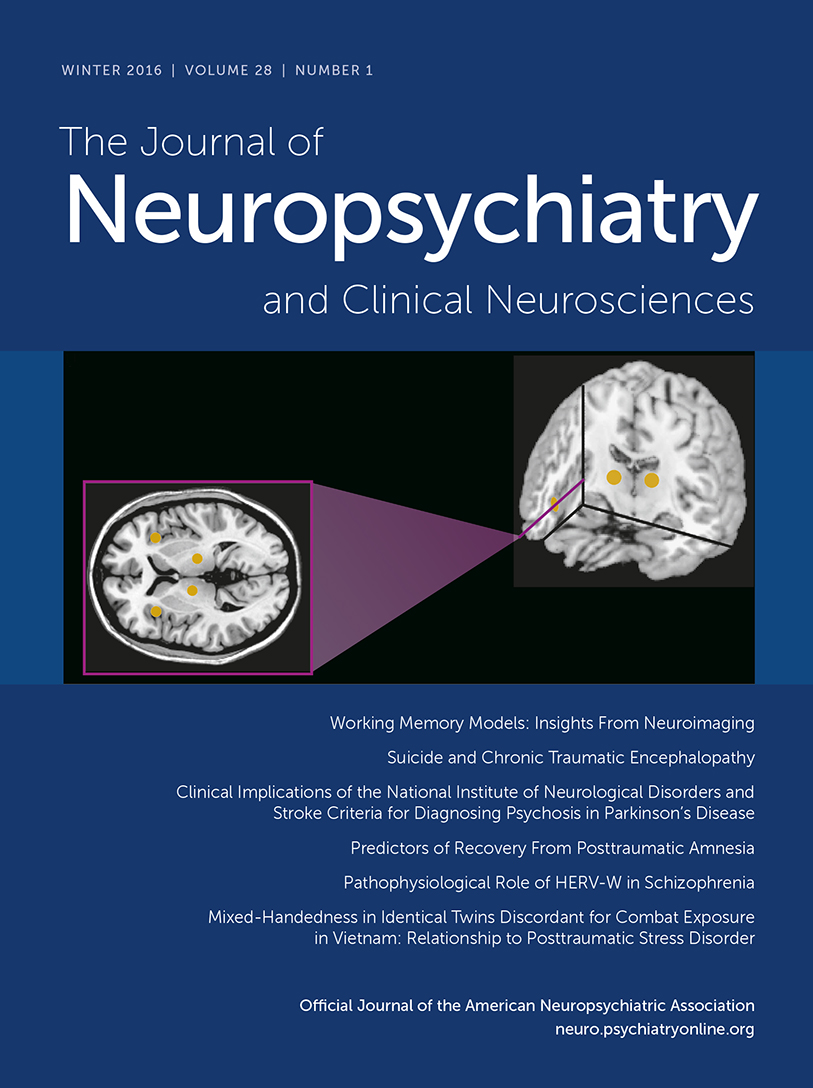Clinical Implications of the National Institute of Neurological Disorders and Stroke Criteria for Diagnosing Psychosis in Parkinson’s Disease
Abstract
The effect of psychotic symptoms in Parkinson’s disease (PD) is variable among patients, and different methods to assess psychosis may yield conflicting results. A sample of 102 patients with a diagnosis of idiopathic PD underwent neurological, psychiatric, and neuropsychological assessment. Participants were divided into three groups: those who met DSM criteria for psychotic disorder, those who had psychotic symptoms but did not meet DSM criteria, and those without any psychotic symptoms. The first group had significantly worse sleep and worse cognitive and psychopathological symptoms compared with the other two groups. Results suggested that patients meeting DSM criteria for psychotic disorder comprise a separate clinical category.



